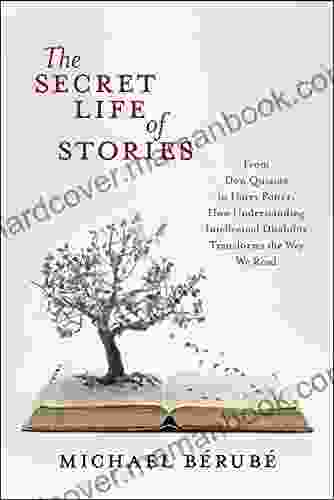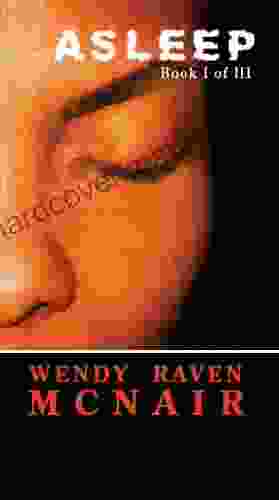Awkward Douglas Tallamy: The Entomologist Who's Changing the Way We Garden

5 out of 5
| Language | : | English |
| File size | : | 27793 KB |
| Lending | : | Enabled |
| Screen Reader | : | Supported |
| Print length | : | 48 pages |
Douglas Tallamy is an entomologist who has been studying the relationship between insects and plants for over 40 years. His work has shown that insects are essential for the health of our ecosystems, and that we need to do more to protect them. Tallamy is a gifted teacher and communicator, and his work has inspired a new generation of conservationists.
Tallamy's work has shown that insects play a vital role in the food chain. They are the primary food source for birds, bats, and other animals. Insects also pollinate plants, which is essential for reproduction. In addition, insects help to decompose organic matter, which helps to recycle nutrients back into the soil.
Unfortunately, insect populations are declining around the world. This is due to a number of factors, including habitat loss, pesticide use, and climate change. Tallamy believes that we need to do more to protect insects. He recommends that we plant more native plants in our gardens, reduce our use of pesticides, and create wildlife habitat in our communities.
Tallamy's work is having a major impact on the way we garden. More and more people are choosing to plant native plants in their gardens, and they are using fewer pesticides. Tallamy's work is also inspiring a new generation of conservationists. He is a passionate advocate for insects, and he is convinced that we can make a difference.
The Importance of Native Plants
Native plants are those that have evolved in a particular region. They are adapted to the climate and soil conditions of that region, and they provide food and shelter for the local wildlife. Native plants are essential for the health of our ecosystems.
Tallamy's research has shown that native plants support a greater diversity of insects than non-native plants. This is because native plants have evolved to interact with the insects that live in their region. For example, native plants produce flowers that are the right size and shape for the local bees. They also produce nectar that is rich in nutrients that bees need.
Non-native plants, on the other hand, may not be as well-suited to the local insects. They may not produce the right kind of flowers or nectar, or they may produce toxins that are harmful to insects.
By planting native plants in our gardens, we can help to support the local insect population. This will benefit the birds, bats, and other animals that depend on insects for food. It will also help to improve the health of our ecosystems.
Reducing Pesticide Use
Pesticides are chemicals that are used to kill pests. They can be harmful to insects, as well as other animals and humans. Tallamy believes that we should reduce our use of pesticides as much as possible.
There are a number of ways to reduce pesticide use in the garden. One way is to choose plants that are resistant to pests. Another way is to use natural methods of pest control, such as planting companion plants or attracting beneficial insects.
If you do need to use pesticides, be sure to follow the directions carefully and only use them when necessary. You should also avoid using pesticides that are harmful to insects.
Creating Wildlife Habitat
In addition to planting native plants and reducing pesticide use, we can also create wildlife habitat in our communities. This can be done by providing food, water, and shelter for insects and other animals.
There are a number of ways to create wildlife habitat in your community. One way is to plant a pollinator garden. Pollinator gardens are planted with flowers that are attractive to bees, butterflies, and other pollinators. You can also plant a wildlife garden, which provides food and shelter for a variety of animals.
Another way to create wildlife habitat is to provide water sources for animals. This can be done by creating a birdbath or a pond. You can also leave out water bowls for insects and other animals.
Finally, you can provide shelter for animals by building nest boxes or bat houses. You can also leave piles of leaves or brush in your yard for animals to use as shelter.
By creating wildlife habitat in our communities, we can help to support the local insect population. This will benefit the birds, bats, and other animals that depend on insects for food. It will also help to improve the health of our ecosystems.
Douglas Tallamy is a passionate advocate for insects. He believes that insects are essential for the health of our ecosystems, and that we need to do more to protect them. Tallamy's work is having a major impact on the way we garden. More and more people are choosing to plant native plants in their gardens, and they are using fewer pesticides. Tallamy's work is also inspiring a new generation of conservationists.
We can all make a difference by planting native plants, reducing pesticide use, and creating wildlife habitat in our communities. By working together, we can help to protect insects and ensure the health of our ecosystems for future generations.
5 out of 5
| Language | : | English |
| File size | : | 27793 KB |
| Lending | : | Enabled |
| Screen Reader | : | Supported |
| Print length | : | 48 pages |
Do you want to contribute by writing guest posts on this blog?
Please contact us and send us a resume of previous articles that you have written.
 Top Book
Top Book Novel
Novel Fiction
Fiction Nonfiction
Nonfiction Literature
Literature Paperback
Paperback Hardcover
Hardcover E-book
E-book Audiobook
Audiobook Bestseller
Bestseller Classic
Classic Mystery
Mystery Thriller
Thriller Romance
Romance Fantasy
Fantasy Science Fiction
Science Fiction Biography
Biography Memoir
Memoir Autobiography
Autobiography Poetry
Poetry Drama
Drama Historical Fiction
Historical Fiction Self-help
Self-help Young Adult
Young Adult Childrens Books
Childrens Books Graphic Novel
Graphic Novel Anthology
Anthology Series
Series Encyclopedia
Encyclopedia Reference
Reference Guidebook
Guidebook Textbook
Textbook Workbook
Workbook Journal
Journal Diary
Diary Manuscript
Manuscript Folio
Folio Pulp Fiction
Pulp Fiction Short Stories
Short Stories Fairy Tales
Fairy Tales Fables
Fables Mythology
Mythology Philosophy
Philosophy Religion
Religion Spirituality
Spirituality Essays
Essays Critique
Critique Commentary
Commentary Glossary
Glossary Bibliography
Bibliography Index
Index Table of Contents
Table of Contents Preface
Preface Introduction
Introduction Foreword
Foreword Afterword
Afterword Appendices
Appendices Annotations
Annotations Footnotes
Footnotes Epilogue
Epilogue Prologue
Prologue Rachel Holtzman
Rachel Holtzman Dianne Chapman Mccleery
Dianne Chapman Mccleery Nicola Aliani
Nicola Aliani Stephen Spender
Stephen Spender Kimberly Chrisman Campbell
Kimberly Chrisman Campbell Eduardo De Filippo
Eduardo De Filippo Bonnie Wright
Bonnie Wright Lee Parks
Lee Parks Rob Gifford
Rob Gifford Erin Havoc
Erin Havoc Ben Tallon
Ben Tallon Jaideep Parashar
Jaideep Parashar Margaret Gibson
Margaret Gibson Joel Stern
Joel Stern Dakota Grady
Dakota Grady Karla Brandenburg
Karla Brandenburg Daniel Brown
Daniel Brown John Louis Haney
John Louis Haney Jeremy Taylor
Jeremy Taylor Rachel Dodman
Rachel Dodman
Light bulbAdvertise smarter! Our strategic ad space ensures maximum exposure. Reserve your spot today!

 Cruz SimmonsThe Ultimate Guide to Investing in the Stock Market and Achieving Financial...
Cruz SimmonsThe Ultimate Guide to Investing in the Stock Market and Achieving Financial...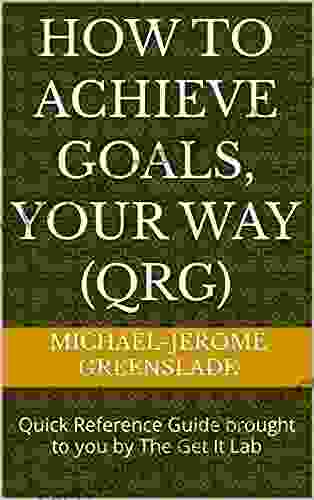
 Samuel WardMaster Your Customer Interactions with the Quick Reference Guide from The Get...
Samuel WardMaster Your Customer Interactions with the Quick Reference Guide from The Get... Douglas AdamsFollow ·5.2k
Douglas AdamsFollow ·5.2k Franklin BellFollow ·14.6k
Franklin BellFollow ·14.6k Jamison CoxFollow ·4.4k
Jamison CoxFollow ·4.4k Juan RulfoFollow ·4k
Juan RulfoFollow ·4k Herman MelvilleFollow ·18.4k
Herman MelvilleFollow ·18.4k Jan MitchellFollow ·6.9k
Jan MitchellFollow ·6.9k Geoffrey BlairFollow ·3.7k
Geoffrey BlairFollow ·3.7k John UpdikeFollow ·7.9k
John UpdikeFollow ·7.9k

 Eugene Powell
Eugene PowellComplete Guide to Using Yoga With Kids: Benefits, Tips,...
Yoga is an ancient practice that has been...
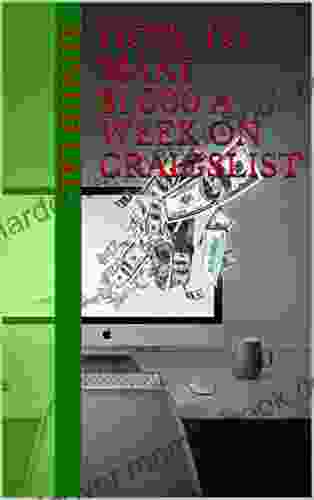
 Benji Powell
Benji PowellHow to Make $000 Per Week on Craigslist
Are you looking for a way to make extra money...
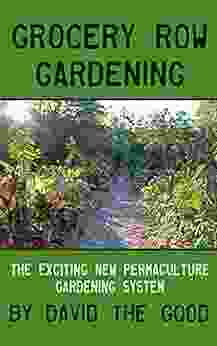
 Gabriel Garcia Marquez
Gabriel Garcia MarquezGrocery Row Gardening: The Exciting New Permaculture...
Kick-start your gardening journey with the...
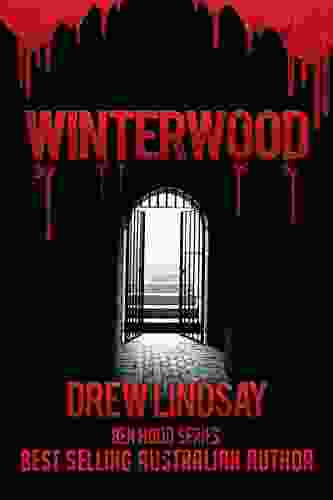
 Hayden Mitchell
Hayden MitchellUnveiling the Gripping World of Winterwood: Ben Hood...
In the annals of crime thrillers, the...

 E.M. Forster
E.M. ForsterThe Financial Advisor Guide To Managing and Investing...
As a financial...
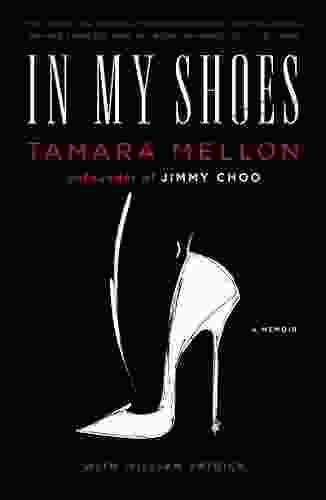
 Lee Simmons
Lee SimmonsIn My Shoes Memoir: A Poignant Journey of Resilience,...
In the tapestry of life, adversity often...
5 out of 5
| Language | : | English |
| File size | : | 27793 KB |
| Lending | : | Enabled |
| Screen Reader | : | Supported |
| Print length | : | 48 pages |





